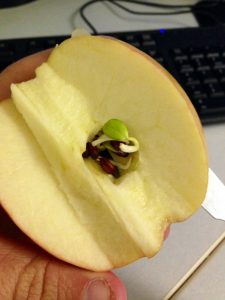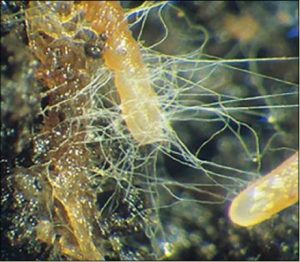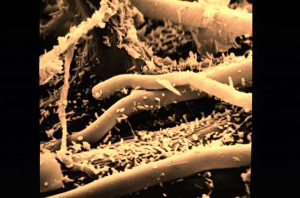I love vegans and vegetarians. In a world where moral consequences are seldom considered and rarely discussed, vegans are seekers: willing to grasp the nettle. They refuse food that has been produced by inflicting suffering and death on animals. But no writing is as poignant as that of a vegan or vegetarian who has run up against the reality that the plants they eat have to eat too.

Lierre Keith in The Vegetarian Myth writes that she decided to grow a garden. Producing her own food left her ideas about what was moral and what was not in tatters. First she found plants like to eat dead animals, animal parts and animal waste. She rejected commercial synthetic fertilizer since it was based on oil, made with animals (and plants) now dead for millions of years. She was shocked when she read the label of a highly recommended organic garden fertilizer. It contained among other things, blood meal and bone meal. She considered using manure, and describes her agony at stepping into the exploitation of animals reviled by her and her vegan friends. She reflects upon the certainties of her younger self, “…would the horror at what I would become–eater of meat, murderer–leave no room for blaze marks on the long, heavy path to grace?” Eating is a circle, humans are a part of the circle and plants are perfectly willing to eat human excrement, our blood and our bones. “It is a reciprocal relationship between animals and plants, the prey eventually becomes the predator.” Keith put manure on her flagging garden and it burst into life: tomatoes vining everywhere, peppers, squash, eggplant, enough for her and her friends and neighbors.
She fell in love. There is nothing like a love affair to cause one to reexamine one’s thoughts on right and wrong. She took the apple she says from the serpent. But thoughtfully and in light of the scholarship of Stephen Harrod Buhner who tells us that plants defend themselves, protect each other, communicate, call out to other plants and sacrifice themselves. link
Keith embraced the fact– for the first time –that seeds were alive and killing plants and animals was perhaps morally the same. Then the slugs came. Destroying her beloved plants. She agonized over killing them. She turned to ducks and rationalized that she was not doing the killing. “Neither was Eichman, whispered the Vegan Voice of Truth.” she writes, “…All Eichman did was arrange the transportation.”
“Neither was Eichman, whispered the Vegan Voice of Truth.” she writes, “…All Eichman did was arrange the transportation.”
Perhaps this reveals how far modern Americans are from the realities of nature. Although that Gaina monks were reported in the late 1800’s to strain water to remove insects to avoid harming them. link
Thinking about morality is not to be disdained. The most devoted meat-eater cannot deny the shocking treatment of animals in modern factory farms.


And plants, Keith acknowledges, “are produced by modern agriculture that takes land and clears from it every living thing, including bacteria.” Then commercial farmers plant a handful of species like corn, wheat, soybeans, rice. And this is the nettle or the serpent’s apple, we should all think about. “Land in its native state is rich with a multitude of plants, working in concert with microfauna, bacteria, fungi, yeasts.” Plants take sunlight and transform it into forests, prairies and wetlands with miles of root systems.
The great American prairies and their rich and useful bacteria and fungi are disappearing; and, the 100 million prairie Bison, now, post agriculture, number only about 15,000. Up to a million wolves now number only about 10,000. Building dams and irrigation from rivers on American riceland destroys entire ecosystems. Keith writes, “The list of birds is a roll call of the damned and it stretches from here to hell. Any bird dependent on a river will l find its name written there.” Rice, even brown rice beloved of vegans, “is the result of dead fish and dead birds from a dying river.” It takes 250 to 650 gallons of water to grow a pound of rice according to author William R. Catton link Yet the price of rice at my grocery store is very reasonable. Very reasonable.
Humans, vegans, monks, all of us want to do the right thing. We need to figure out what that is.